K-12 Virtual Program

Join us to learn about the importance of stories of the Holocaust. In this program, we will dive deeper into discussing how we honor and preserve the stories and memories of another’s lived experiences from the Holocaust. The program will also offer sessions with resources for teaching the Holocaust in K-12 classrooms.
Schedule | Speakers | Concurrent Sessions| Program Materials
Schedule
| Thursday, DECEMBER 3rd | |
| 3:30 p.m. | Welcome
Charlé LaMonica, Director, World View, UNC-Chapel Hill
|
| 3:35 p.m. |
Teaching the Holocaust: An Integrated History of Perpetrators and Victims
Karen Auerbach, Department of History, UNC-Chapel Hill
|
| 4:10 p.m. |
The Great Escape: How a Six-Year-Old Fled Nazi-Occupied Netherlands in Search of a Safe Haven
Alexander “Lex” Silbiger, Professor Emeritus, Department of Music, Duke University and The Center for Holocaust, Genocide, and Human Rights Education of NC
|
| 4:40 p.m. | Break |
| 4:50 p.m. | Concurrent Sessions |
| 5:30 p.m. | Close |
Speakers
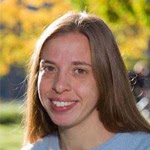 |
Karen Auerbach is an associate professor in the Department of History at UNC-Chapel Hill. Professor Auerbach’s research focuses on the social history of Polish Jews in the nineteenth and twentieth century, especially issues relating to Jewish integration, urban life, and the evolution of Polish Jewish identifications. Her first book, published in 2013, is a microhistory of Jewish families who were neighbors in an apartment building in Warsaw after the Holocaust, exploring the reconstruction of communities and identifications in postwar Poland. She is currently researching the history of Jewish publishers of Polish books in the nineteenth and early twentieth century, in particular their involvement in Polish cultural, social and political circles, as well as information networks and the history of Yiddish in Eastern Europe during the Holocaust. Auerbach’s teaching focuses on modern Jewish history, East European Jewish History and the Holocaust. |
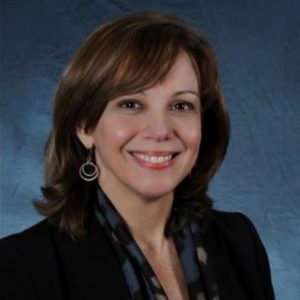 |
Charlé LaMonica is the director of World View. She works with World View’s Partners both on and off campus; forges strategic alliances and collaborations with schools, districts, and community colleges; leads the Global Education Leaders Program, and represents World View in NC and on the national and global stage. Her international career began as an educational outreach and research associate with the NC China Council of the Asia Society. Within the education arena, Charlé has vast experience working with students: she taught English and history in middle and high schools for more than 15 years as well as world history at the community college and university level. Her involvement in international business and education has allowed her to collaborate with those working in Asia, Europe, Latin America, and Africa. Charlé holds a master’s degree from UNC Charlotte and a bachelor’s degree from Boston College. |
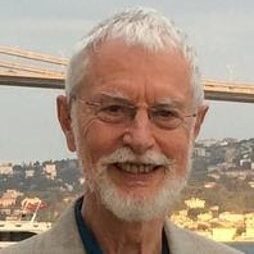 |
Alexander “Lex” Silbiger clearly remembers when in 1940 German troops invaded his native Holland and when his fifth birthday party was interrupted by an air raid. In the following years of Nazi occupation, increasingly oppressive restrictions were placed on the Jews of Holland. Most people thought one just had to put up with this until the Allied forces would come and kick the Germans out; no one could conceive the fate that actually awaited them. When early in 1942 Lex’s family got word through the Dutch resistance of the German plan for the Jews, his parents decided they needed to escape from Holland, no matter how dangerous and difficult. Without alerting their two children in advance, they left with them one morning, fleeing to Belgium and then to France, where they lived for almost half a year as “illegal aliens.” Lex and his older brother were not permitted to speak in public or make any friends, for fear that might betray them. Eventually, they were able to get to Spain and board a ship that took them to Jamaica, where they were forced to stay in a refugee camp. Approximately a year after they had left Holland, they were finally admitted to Curacao, then a Dutch colony, where they could live in safety for the rest of the war and where the children could resume their schooling. In 1946, the family returned to Holland, and in 1952 Lex entered college in the United States. He moved to Durham in 1984 to become a Professor of Music at Duke University. In his earlier years, Lex also taught music to children of grade-school and high-school age, but now, in his retirement, he believes it is important to tell young people about the Holocaust years, about his experiences fleeing from Nazi oppression, and about trying to find a safe haven somewhere in the world. |
Concurrent Sessions
1. Grades K-12 |
| Inheriting the Role of a Witness: My Experiences as a Daughter of Holocaust Survivors |
| Sharon Halperin, Director, The Center for Holocaust, Genocide, and Human Rights Education of NC (The Holocaust Speakers Bureau) |
| Sharon Halperin is the daughter of two Holocaust survivors. Her mother survived the war by living in the forests of Poland. Her father and his family were deported to the Riga ghetto (in Latvia). He escaped when his unit was tasked with digging ditches to be used as mass graves in the woods outside the ghetto. Both of her parents fled eastward as the war progressed and met in Russia, where they married. Homeless at the end of the war, they lived in several Displaced Persons Camps in Germany. In 1947, they were given permission to immigrate to the United States. Sharon will share her parents’ stories and tell you what it was like growing up as a child of survivors. |
2. Grades 6-12 |
| History, Holocaust, and Digital Storytelling in the Global Classroom |
| Lauren Granite, Director of Education North America, Centropa |
| Centropa, a historical organization based in Vienna, works with teachers to use our stories of 20th century Central European Jewish life to explore students’ own stories, civic values, tolerance, and global citizenship. We asked elderly Jews in 15 European countries to tell us their entire life stories spanning the 20th century as they showed us their old family photographs. We did not use video or focus on the Holocaust, and we don’t have a boxed curriculum. Teachers use our 22,000 old photographs, 1200 interviews, and short multimedia films to create the lessons they need for the students they teach for history, ethics, geography, civics, foreign language, creative writing, English Language Arts, film, art, and photography classes. Our materials cost nothing, and can be found at www.centropa.org. |
Concurrent Session Speakers
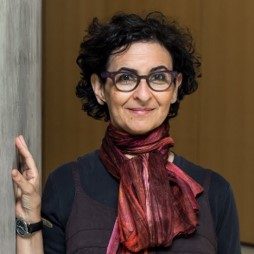 |
Dr. Lauren Granite directs Centropa’s US educational programs. Before joining the Centropa staff, she spent more than a dozen years teaching Jewish history in colleges, Jewish day schools and congregational schools. As a teacher, Lauren created our first cross-cultural projects with Berlin and Budapest. And since 2010 she has been building our network of Jewish day and congregational schools; expanding into public, parochial and charter schools; running workshops and seminars; mentoring teachers; writing lessons and projects; and establishing teacher advisory teams to advise us about Centropa curricula. |
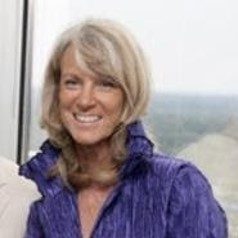 |
Sharon Halperin is the daughter of two Holocaust survivors from Poland and Latvia. Her mother survived the war by living in the forests of Poland. Her father escaped from the Riga (Latvia) Ghetto when his unit was tasked with digging ditches in a nearby forest. Both of her parents fled eastward as the war progressed and met in Russia, where they married. At the end of the war, they lived in several Displaced Persons Camps in Germany. In 1947, they immigrated to the United States. Sharon has worked on annual Holocaust commemorative services and events for over 30 years and has taught mini-courses that focus on lessons of the Holocaust, the use and abuse of power, resistance and rescue, and the role of personal responsibility. Sharon is happy to speak to groups of all ages about her parents’ experiences during the war in Poland, Latvia and Russia. She includes the topics of Displaced Persons Camps and Immigration to the United States. |
Program Materials
Instructions: To receive .5 CEU you must attend the virtual program on December 3rd and turn in a study guide. DOWNLOAD THE STUDY GUIDE HERE. Please return completed study guide by Friday, December 18, 2020 to Nick Allen, World View Program Coordinator at NICKA@UNC.EDU.
General support provided by:
Office of the Vice Provost for Global Affairs |
 |
In-kind support provided by:
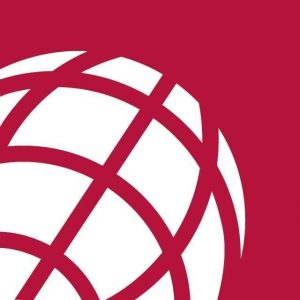
North Carolina Department of Public Instruction Global Education



